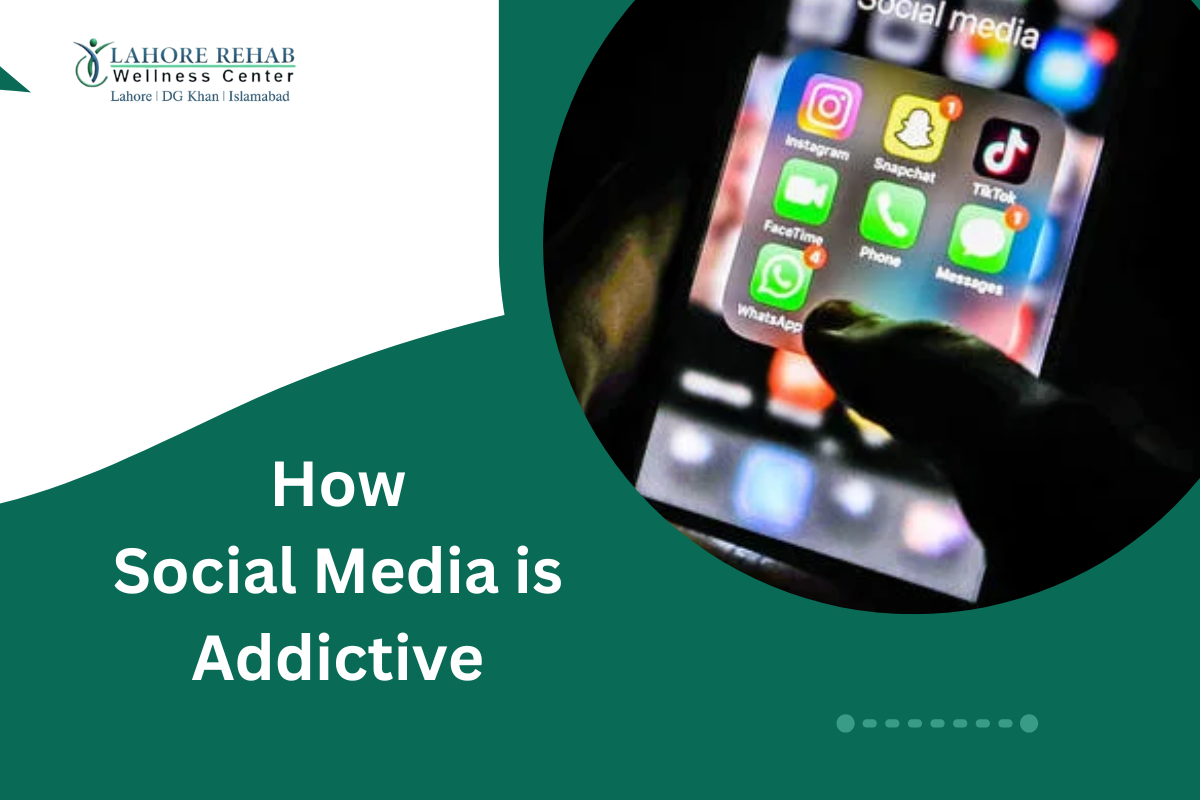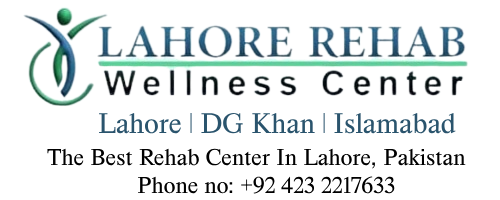
Social media has revolutionized the way we connect, share, and consume information. Platforms like Facebook, Instagram, TikTok, and Twitter have become integral parts of daily life, offering entertainment, communication, and a sense of belonging. However, these platforms are designed with features that make them highly addictive, capturing the attention of millions worldwide. The compulsive need to check notifications, scroll endlessly, or gain validation through likes and comments raises concerns about their impact on mental health and productivity. This blog explores why social media is so addictive, its effects on individuals, and how Lahore Rehab Center provides the best support for overcoming this growing issue.
Social media platforms are engineered to exploit the brain’s reward system. Every like, comment, or share triggers a release of dopamine, the “feel-good” neurotransmitter. This creates a cycle of instant gratification, reinforcing the behavior of checking social media repeatedly. The anticipation of receiving positive feedback keeps users hooked, making it challenging to resist the urge to scroll.
Fear of Missing Out (FOMO)
The fear of missing out is a powerful motivator that keeps users engaged. Social media constantly showcases curated highlights of others’ lives, creating anxiety about being left out or not staying up-to-date. This emotional trigger drives individuals to check their feeds compulsively, even when it interferes with daily responsibilities.
Variable Rewards
Social media operates on the principle of variable rewards, similar to slot machines. Users never know what content will appear next, making each scroll a gamble. This unpredictability keeps individuals engaged for longer periods, as they chase the thrill of finding something exciting or relevant.
Excessive Screen Time
People addicted to social media often spend hours daily scrolling through feeds, watching videos, or engaging in conversations. This excessive screen time affects physical health, leading to eye strain, poor posture, and disrupted sleep patterns.
Neglecting Real-Life Relationships
Social media addiction can lead to a decline in face-to-face interactions. Individuals may prioritize online connections over real-life relationships, resulting in feelings of isolation and loneliness.
Escapism and Emotional Dependency
For many, social media serves as an escape from stress, boredom, or negative emotions. Over time, it becomes a coping mechanism, making it harder to address underlying issues and fostering emotional dependency on virtual interactions.
The Impact of Social Media Addiction
Excessive use of social media is linked to anxiety, depression, and low self-esteem. Constant comparisons with others’ highlight reels can lead to feelings of inadequacy and dissatisfaction with one’s own life.
Productivity Loss
Social media addiction significantly impacts productivity. The constant distractions and interruptions make it difficult to focus on tasks, resulting in decreased efficiency at work or school.
Physical Health Concerns
Spending long hours on social media often leads to a sedentary lifestyle, contributing to obesity, chronic pain, and other health issues. Poor sleep hygiene, caused by late-night scrolling, further exacerbates these problems.
At Lahore Rehab Center, we understand the complexities of social media addiction and its impact on mental and physical well-being. Here’s why we stand out:
Comprehensive Assessment and Personalized Plans
Our experts conduct a thorough assessment of each individual’s condition to design personalized treatment plans. This ensures that the underlying causes of addiction are addressed effectively.
Holistic Therapy Approach
We offer a range of therapies, including cognitive-behavioral therapy (CBT), mindfulness techniques, and group counseling sessions. These therapies help individuals understand their triggers, develop healthier habits, and regain control over their lives.
State-of-the-Art Facilities
Our center provides a serene and supportive environment equipped with modern amenities. This promotes healing and encourages individuals to focus on their recovery journey.
Experienced Professionals
Our team of licensed psychologists, therapists, and counselors has extensive experience in treating behavioral addictions. Their empathetic approach ensures that individuals receive the care and support they need.
Ongoing Support and Aftercare
Recovery doesn’t end with treatment. Lahore Rehab Center offers aftercare programs and continuous support to help individuals maintain their progress and prevent relapse.
Set Boundaries
Establishing limits on screen time can reduce overuse. Use apps or device settings to monitor and restrict time spent on social media.
Practice Mindful Usage
Be intentional about why and how you use social media. Avoid mindless scrolling and focus on meaningful interactions.
Take Digital Detoxes
Periodically disconnecting from social media can help break the cycle of addiction and provide mental clarity.
Seek Professional Help
If self-help strategies aren’t enough, seeking professional support from experts like those at Lahore Rehab Center can make a significant difference.
Conclusion
Social media addiction is a growing concern in today’s digital age, affecting mental health, productivity, and overall well-being. By understanding its psychological and behavioral underpinnings, individuals can take proactive steps to regain control. Lahore Rehab Center is dedicated to helping individuals overcome social media addiction through personalized care, expert guidance, and holistic therapies. With the right support, it’s possible to achieve a balanced and healthier relationship with technology.

0312-7867255
0303-7867255
042-32217633
Lahore Rehab Center